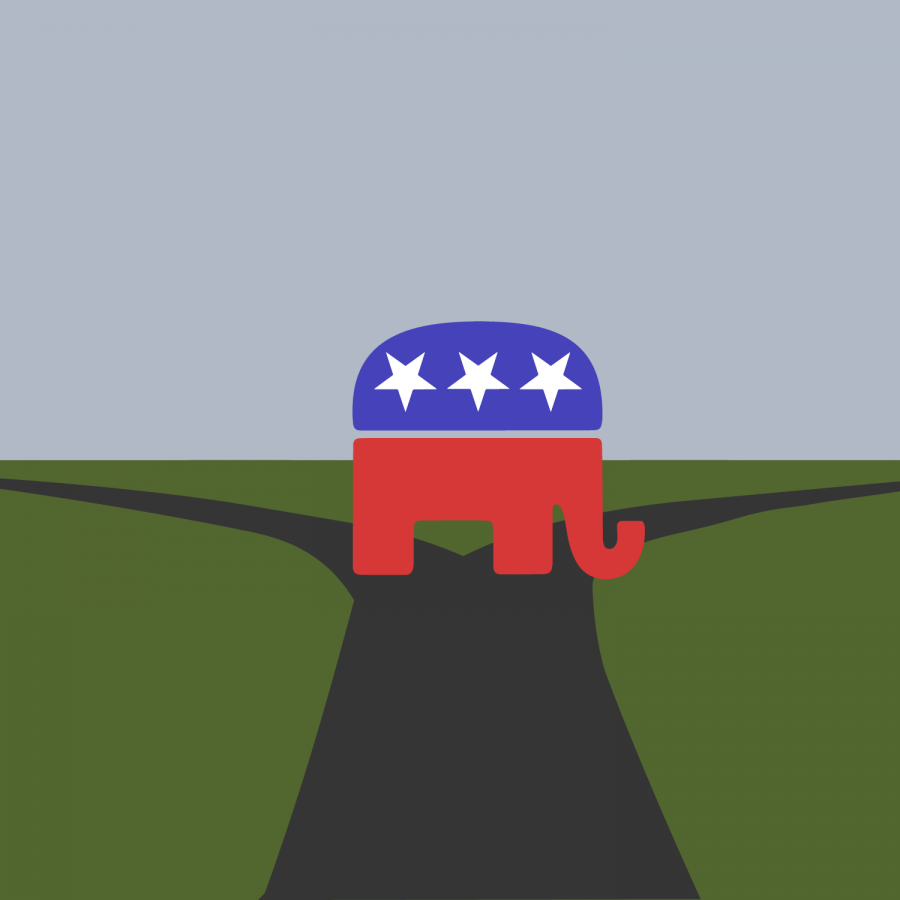Republican Party reaches a crossroad
December 4, 2018
In the wake of the 2016 election and the rise of Donald Trump, one of the most important consequences has been the exposure of the fault lines in the Republican Party. Although they went underground for much of the recent past, there have always been significant ideological differences on the American right that will again begin to emerge under the new stresses of the 21st century.
Both major political parties are often described as “big tent” parties, able to accommodate a wide range of views; however, the inherent contradictions in the Republican Party, between two intractable world views, threatens to topple their divided house.
The alliance that has characterized the party — between libertarians and conservatives — has begun to show signs of weakness. Although deeply rooted, the present version was forged in the Cold War, spurred on by William Buckley and his National Review magazine, who saw that the principles of anti-communism, limited government and opposition to the New Deal could unite these different strands. One of Buckley’s editors at National Review, Frank Meyer, is credited as the intellectual father of this synthesis, which he would call “fusionism.”
Fusionism is easily recognizable as the animating philosophy of modern Republicans, who advocate for free markets, individual liberty and limited government regulation, as well as for traditional social institutions and personal morality. However, it is not inevitable that these positions go together.
Libertarianism is a type of liberalism, which believes in the abstract power of reason to derive universally true principles for government and society. Conservatives deny that such principles are discoverable, instead relying on the embodied experience of tradition to maintain social order, without which liberty is impossible. Conservatives derive their belief in limited government and abstract liberty from a political tradition which prized it, while liberals favor it on the basis of the abstract rationales provided by thinkers like John Locke and Friedrich Hayek.
Get The Daily Illini in your inbox!
During the Cold War, fusionism made sense, but, without the looming existential threat of communism, other major challenges have driven a wedge in the party. This was brought to a head with the election of President Trump. Trumpism is, in many ways, a reaction to globalization and a reassertion of national identity by a populist conservative movement within the party, which contrasts sharply with libertarianism.
The differences are perhaps most stark on economics. Take free trade, for example. Libertarians take it as an article of faith that tariffs and other protectionist policies are always counterproductive. The Trump-wing sees them as serving the larger goal of preserving national sovereignty and protecting American workers hurt by globalization.
Likewise, on immigration, the pro-business wing focuses almost exclusively on positive economic impacts. The conservative wing, however, warns that the large-scale immigration of recent decades without a policy of assimilation will lead to a decay of national identity, disorder and conflict.
There is a plethora of other issues that will continue to divide the party, which must choose a direction. Some have distanced themselves from the president, while others have more closely hewed to the ideas he represents.
Senator Marco Rubio has chosen the latter course and neatly summarized the choice in a speech in Washington this summer. He highlighted the need for a “new American nationalism,” contrasting it with a view of America as merely an economy or “just a piece of land shared by 326 million individuals.”
Whether the party doubles down on fusionism or attempts to chart a new course, the ideas that animate Trumpism are not going away.
Cole is a junior in LAS.







